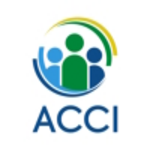
2024 Annual Conference
May 21–23, 2024
Hyatt Regency Milwaukee, Milwaukee, WI, USA
IMPORTANT NOTICE: The date, time, and room assignment of YOUR presentation is SUBJECT TO CHANGE.
Proposal authors can use this tool to see where they have been placed in the program agenda for an Oral or Poster Session.
Scroll down to search by the Submitter or Author Name, by Date/Time, or by Keywords.
Confirm your place in the schedule by following the instructionss that were emailed to you. Each presentation must have a separate paid registration. Contact the ACCI office immedicately by email at admin@consumerinterests.org to report any conflict, all corrections to the details of the presentation (including author names and the order they are listed as this is how it will be in the final program), or if you have any questions. Please be sure to reference the session title(s), date(s), and time(s) when you contact us.
WITHDRAWN D2c Trust in Institutions and Financial Well-Being in Mexico: Moderating Effect of Fraud Victimization
Short Description
Fraud victims experience physical, material, and emotional effects that undermine their confidence in their financial skills, weaken their trust in institutions, and deteriorate their well-being. This study aims to analyze the effect of financial fraud victimization on the relationship between trust in institutions and the financial well-being of consumers in Mexico. To this end, several multiple linear regression models are constructed, half including financial fraud victimization as a moderating factor. Results confirm that trust in financial institutions is essential for maintaining and increasing financial well-being. In general, financial fraud negatively impacts financial well-being; this is true for identity theft, Ponzi schemes, and fake prizes, but not for card cloning. On the one hand, frauds such as Ponzi schemes significantly deteriorate the effect of trust on financial well-being. This type of fraud is the most damaging regarding trust and other subjective outcomes. On the other hand, while identity theft and fake prizes also affect this relationship, results suggest that the effect of trust on financial well-being increases. This research contributes to the knowledge of financial well-being, trust in institutions, and fraud victimization. Its results are helpful for policymakers and institutions seeking to protect financial consumers.
Type of presentation
Accepted Oral Presentation